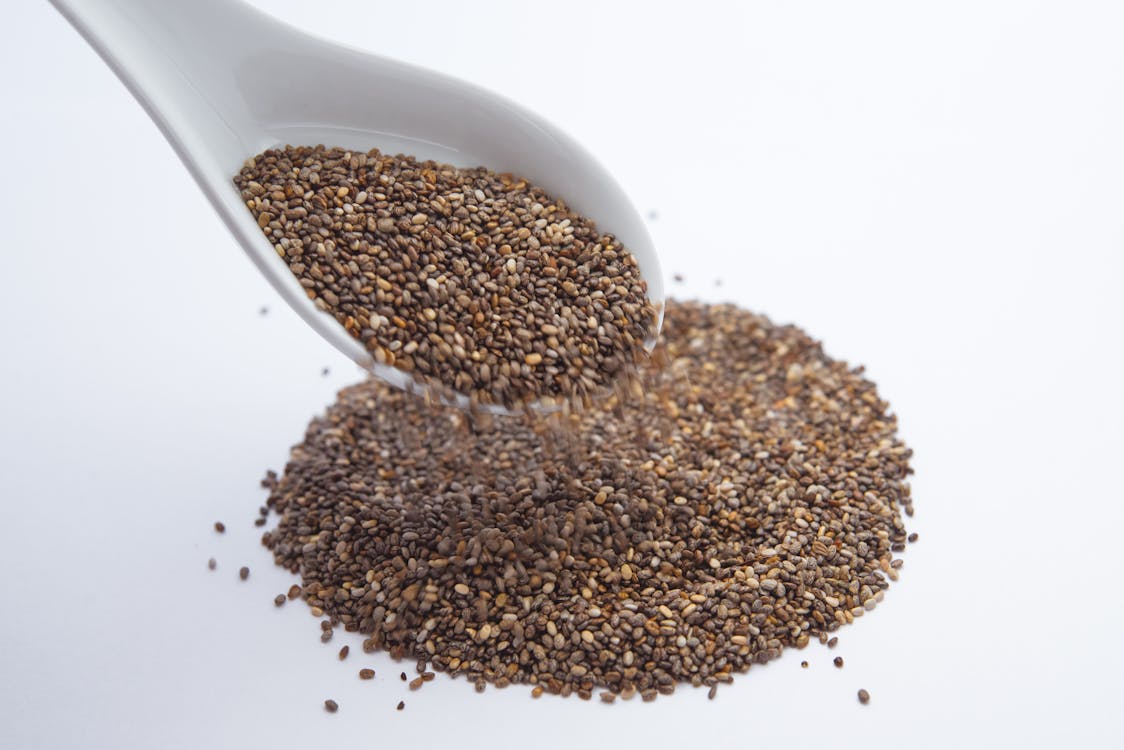The 7 Best Plant Sources of Omega-3 Fatty Acids
1. Chia seeds are rich in Omega-3 fatty acids
Chia seeds, tiny yet mighty, are renowned for their impressive nutritional profile, boasting an abundance of essential nutrients, including omega-3 fatty acids. These versatile seeds, derived from the Salvia hispanica plant, are rich in alpha-linolenic acid (ALA), a type of omega-3 fatty acid known for its numerous health benefits.
The high ALA content in chia seeds makes them an excellent plant-based source of omega-3 fatty acids, particularly for individuals following vegetarian or vegan diets. Omega-3 fatty acids are crucial for supporting heart health, brain function, and overall well-being. They play a vital role in reducing inflammation, lowering blood pressure, and improving cholesterol levels, which are all key factors in maintaining cardiovascular health.

Read Also:
Quick and Healthy Breakfast Ideas for a Busy Morning
2. Flax seed is an excellent source of Omega-3 fatty acids
Flaxseed, often touted as a nutritional powerhouse, indeed stands out as an exceptional source of omega-3 fatty acids. These tiny seeds, derived from the flax plant (Linum usitatissimum), are renowned for their rich content of alpha-linolenic acid (ALA), a type of omega-3 fatty acid known for its numerous health benefits.
The abundance of ALA in flaxseeds makes them a valuable addition to any diet, especially for those seeking to increase their intake of essential fatty acids, particularly if they follow a vegetarian or vegan lifestyle. Omega-3 fatty acids play a crucial role in supporting overall health and well-being, with research suggesting benefits for heart health, brain function, and inflammation management.
3. Walnuts are rich in Omega-3 Fatty Acids
Walnuts are indeed renowned for their rich content of omega-3 fatty acids, making them a valuable addition to a balanced diet. These tree nuts are packed with alpha-linolenic acid (ALA), a type of omega-3 fatty acid known for its numerous health benefits. Incorporating walnuts into the diet can be an excellent way to increase omega-3 intake, particularly for individuals seeking plant-based sources of essential fatty acids.
Omega-3 fatty acids are essential nutrients that play a crucial role in supporting overall health and well-being. Research suggests that omega-3s offer various benefits, including cardiovascular health, brain function, and inflammation management. By including walnuts in the diet, individuals can potentially reduce their risk of heart disease, support cognitive function, and alleviate inflammation throughout the body.
4. Hemp seeds contain high Omega-3 Fatty Acids
Hemp seeds are indeed renowned for their high content of omega-3 fatty acids, making them a valuable addition to a balanced diet. These small seeds, derived from the Cannabis sativa plant, are packed with alpha-linolenic acid (ALA), a type of omega-3 fatty acid known for its numerous health benefits. Incorporating hemp seeds into the diet can be an excellent way to increase omega-3 intake, particularly for individuals seeking plant-based sources of essential fatty acids.
Omega-3 fatty acids are essential nutrients that play a crucial role in supporting overall health and well-being. Research suggests that omega-3s offer various benefits, including cardiovascular health, brain function, and inflammation management. By including hemp seeds in the diet, individuals can potentially reduce their risk of heart disease, support cognitive function, and alleviate inflammation throughout the body.

5. Algal oil is a great source of Omega-3 Fatty Acids
Algal oil indeed stands out as a remarkable source of omega-3 fatty acids, particularly for individuals seeking plant-based alternatives to traditional fish oil supplements. Derived from algae, this oil offers a potent concentration of both eicosapentaenoic acid (EPA) and docosahexaenoic acid (DHA), the two most beneficial forms of omega-3s for human health.
One of the key advantages of algal oil is its sustainability and environmental friendliness. Unlike fish oil, which is obtained from marine species like anchovies and sardines, algal oil is produced through sustainable cultivation methods, eliminating the need for fishing and reducing pressure on ocean ecosystems.
Read Also:
Tips for a Good Night’s Sleep: Creating a Relaxing Bedtime Routine
6. Edamame are a good source of Omega-3 Fatty Acids
Firstly, Omega-3 Fatty Acids are essential nutrients known for their various health benefits, including supporting heart health and brain function. These fats are typically found in fatty fish like salmon, walnuts, and flaxseeds.
However, when it comes to edamame, the story is a bit more nuanced. While it’s true that soybeans contain fats, the type and amount of Omega-3s they provide may not be as significant as in other sources. Edamame primarily contains alpha-linolenic acid (ALA), which is a type of Omega-3 fatty acid. ALA is indeed beneficial, but it’s not as potent as the EPA and DHA forms found in fish.
7. Soybeans contain Omega-3 Fatty Acids in very high amount
Some studies suggest that soybeans, including edamame, can be a rich source of ALA. This finding has led to the promotion of soy-based products as part of a heart-healthy diet. Additionally, soybeans offer numerous other nutrients, including protein, fiber, vitamins, and minerals, making them a valuable addition to any diet.
However, it’s essential to approach the claim of soybeans containing Omega-3s in very high amounts with a critical eye. While soybeans do contain ALA, the concentration may not be as substantial as in other sources, such as fatty fish like salmon or certain nuts and seeds.
Read Also:
Way To Improve Your Mental Health And Become Best Version Of Yourself




